BLOG
Find support not just for emotional eating, but all aspects of your well-being.
Client Insight: “I shifted how I thought about working out and it changed my relationship with my body.”

As an emotional eater you might feel constantly at war with your body. Trying to ignore cravings, stuff down feelings, and constantly critiquing your body. You might even feel betrayed by your body every time the scale goes up or your pants feel tighter.
A lot of this conflict comes from diet culture which encourages us to follow its rules instead of our own needs and wants. One of the most common rules, that you’ve probably engaged in, is the idea that movement is a means to an end to burn the greatest number of calories. If you’ve ever slogged through a workout or pushed past pain to hit a calorie target, chances are you have a not great relationship with movement.
But there are so many reasons to move your body that have nothing to do with your appearance! Read on to start reframing how you move your body and create more appreciation for all it does for you every day!
Forget Calories, Find Play
If you weren’t focused on how many calories you were burning, what movement would you...
Let’s Talk About It: The Rising Popularity of GLP-1 Drugs
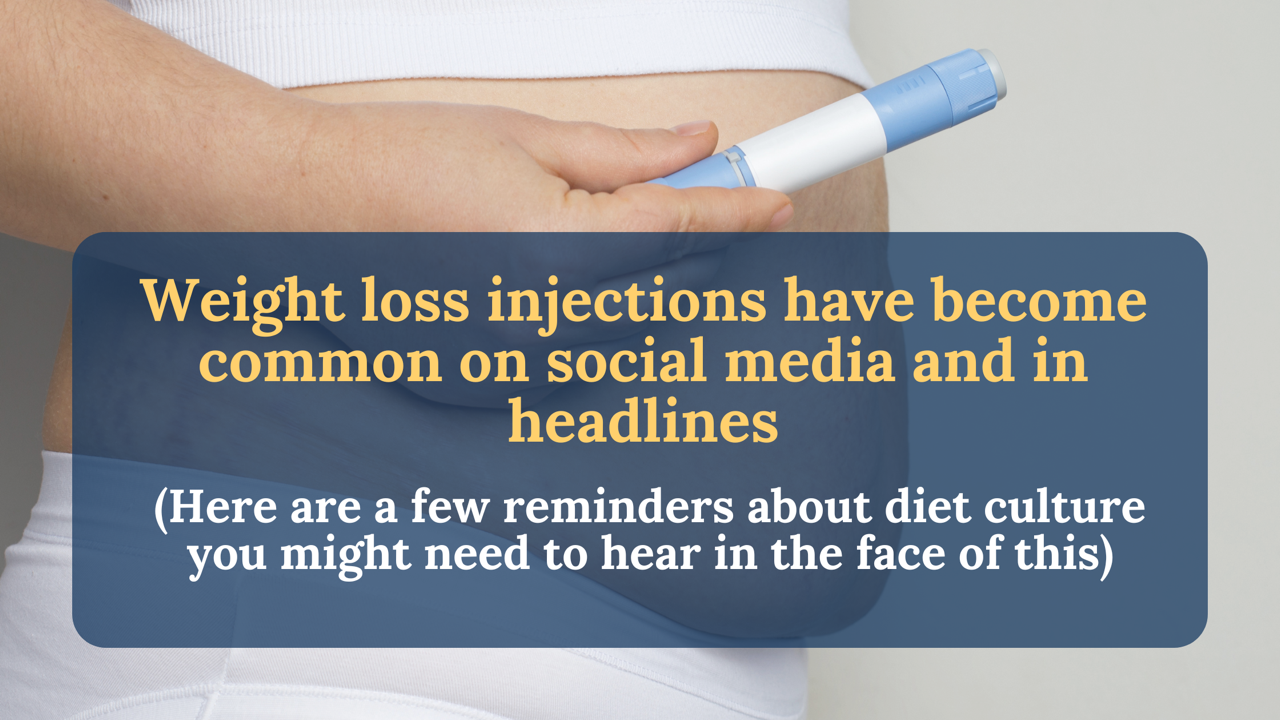
It seems impossible to ignore the presence of GLP-1 medications, you might have heard them being called Ozempic or Wegovy. Diet culture seems to have evolved from a focus on willpower to injections that can give you the “body of your dreams.”
It can be especially difficult to see celebrities who were previously promoting body positivity and self-love admit to taking weight loss injections. It can feel like a betrayal. And some, like influencers on social media, aren’t being transparent about their use of the drug but continue to say only diet and exercise are responsible for their results.
Plus, all these headlines, photos, and videos can make you hyper-aware of your own body as we’re encouraged to compare ourselves to others. You might find your emotional eating—reminder, that can include restricting too—ramps up the more you’re faced with this kind of content. It can be a constant reminder that weight loss is celebrated and only one body type is “acceptable.”
Here are some loving ...
Do You Have a New Year’s Resolution to Lose Weight?
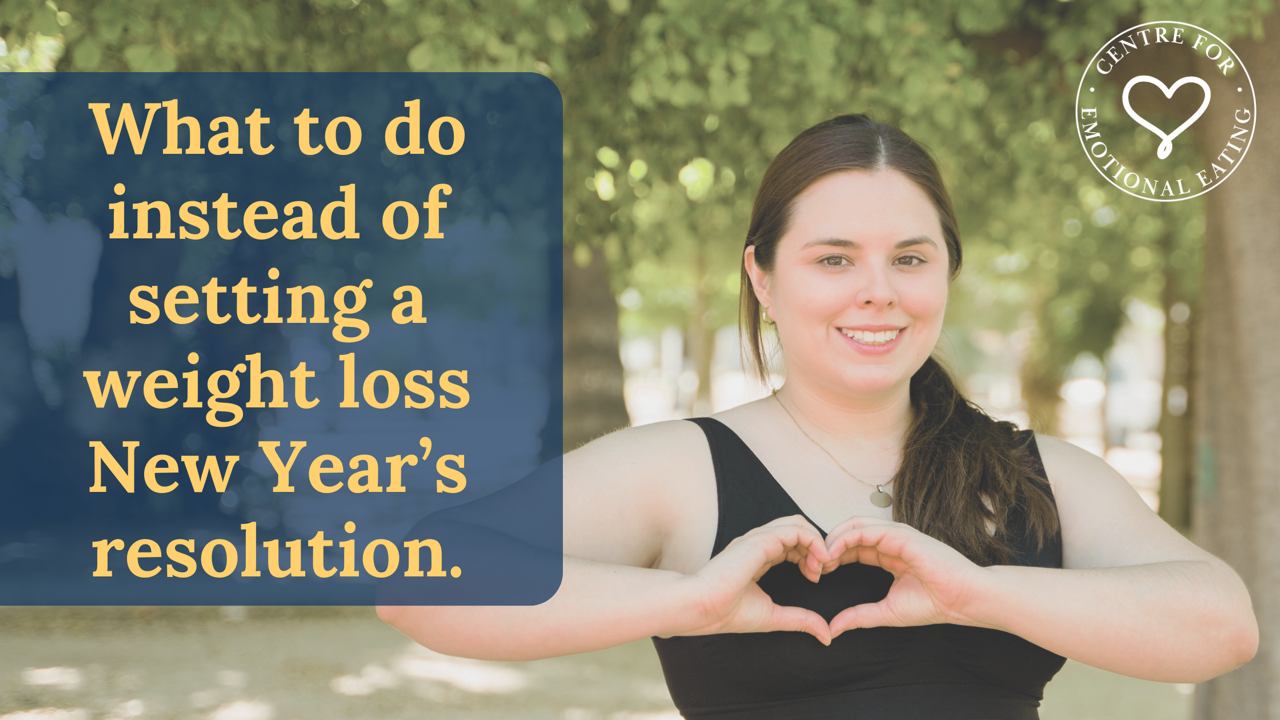
Every January we see more and more messaging about a New Year diet, cleanse, or detox. As a society, we’re pretty vulnerable after holiday celebrations in December that it feels like a given that we should restrict and punish ourselves when the calendar flips to the new year.
If you’ve been caught up in this experience, know you are not alone. New Year’s resolutions to lose weight are incredibly common. But have you ever stopped to think about how this need to diet comes back around *every* year? That means it isn’t working in the first place! This is the truth behind diet culture: it wants to keep you feeling negative about yourself so you keep buying the new plan, app, or book because it keeps them in business.
If you’re tired of yo-yo dieting and constantly feeling bad about how you look, we have 3 things you can add to your routine that won’t make you feel like you’re failing. This is the opposite of a new diet that takes away things you enjoy, telling you to give up carbs or tha...
How to Avoid the Social Media Comparison Trap
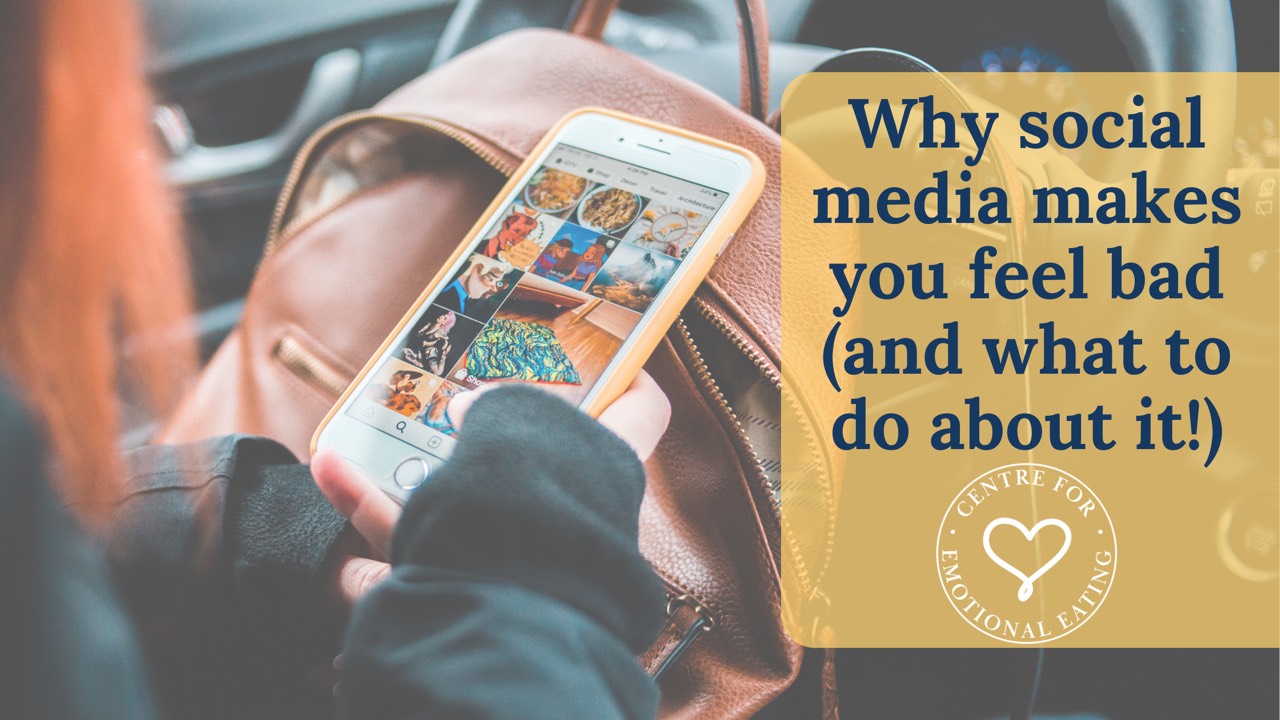
Social media constantly gives us benchmarks to compare ourselves to.
Your Instagram and TikTok feeds are filled with picture-perfect videos and photos of happy kids, clean houses, and expensive vacations. These platforms are also overwhelmed with weightless “success” stories and details of restrictive diets to try to ‘give’ you the body of the influencer posing on the screen.
It’s tough not to get caught up in these images! It’s true that a picture is worth a thousand words, so even before reading the caption or hearing what they’re saying, the image they are projecting is perfection. They are trying to sell you on the idea that if you buy this, do that, you can look just like them, have a life just like theirs.
Talk about a comparison that is only going to make you feel bad about yourself.
But this slim slice we see of others online—a highlight reel—is no yardstick for your own messy, beautiful life!
Here’s the solution to social media comparison:
- You’ve probably heard this be ...
Why You Shouldn’t Fear Change
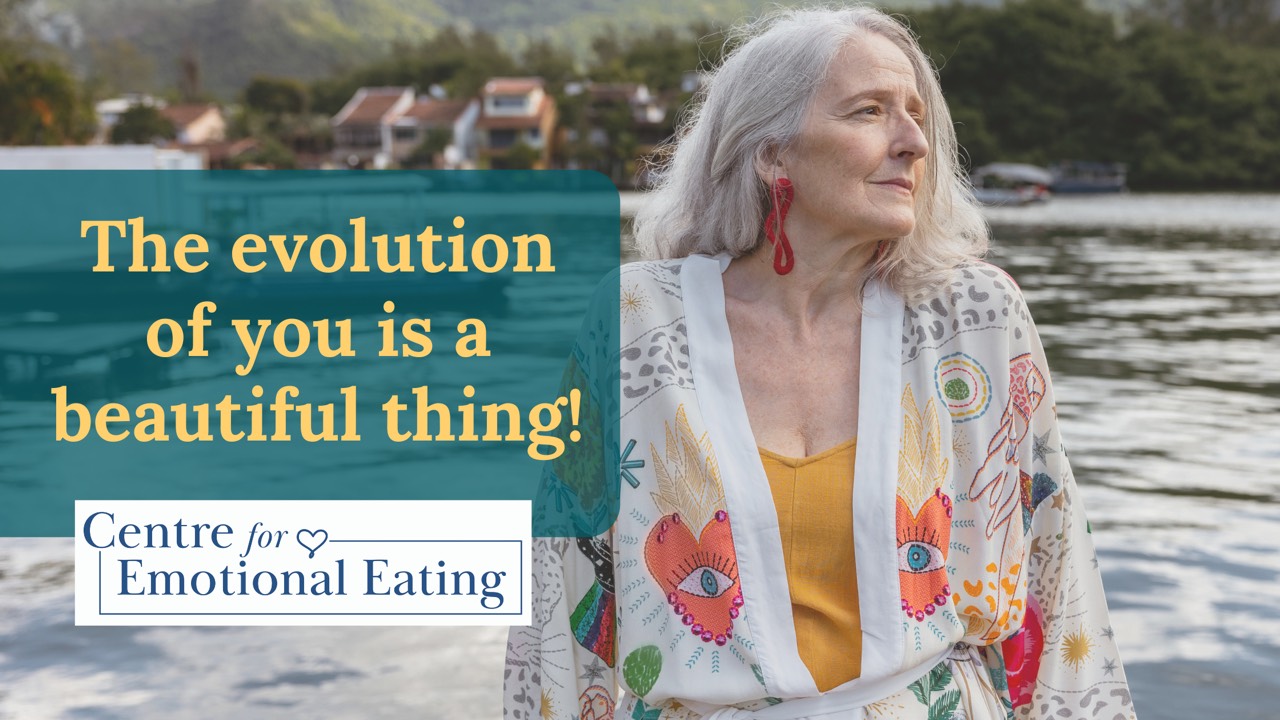
One of the interesting (and powerful!) things of becoming an adult is realizing that you can continue to evolve as you age. It is through discovering new parts of ourselves—likes/dislikes, values, and desires—we start to grow into a new version of our identity.
The more time you can spend doing things that make you feel good—work that is fulfilling, friendships that support you, movement that revitalizes you, clothing that reflects your aesthetic—the less you are likely to reach for food to fill those needs. You’ll never be able to do away with all the unpleasantness of life (bills need to be paid), but having things you look forward to can help ease emotional eating when these stressors do come up because you have something positive to rely on.
But all this personal growth, leaning more into and learning more about yourself, can feel both comforting (you’re not stuck!) and destabilizing (it feels new and overwhelming). You might notice feelings of sadness or grief crop up as who you...
Client Insight: “I lost weight, but my brain still criticized my body size.”
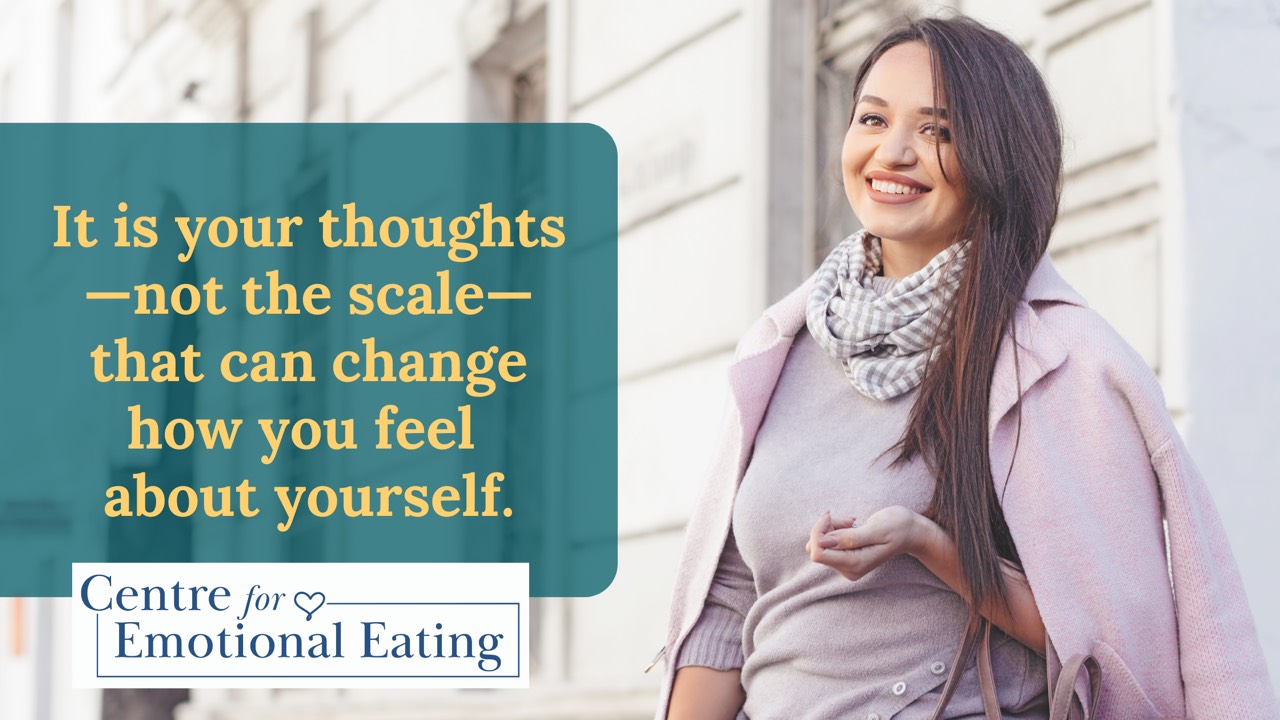
The following blog posts talks about weight loss. If this is something that might bring up negative feelings for you, please skip this post to protect your mental and physical health.
Weight loss can happen for all kinds of reasons, from anxiety to happiness to stress to a change in routine. So, it should come as no surprise that emotional eaters come in all shapes and sizes! What I often hear from clients who have lost weight on their journey is that they still find themselves criticizing their body in the same way as when they weighed more.
Does that surprise you?
Many people I work with at the Centre for Emotional Eating believe that if they could just “get a handle” on their emotional eating that everything would all into place—their waistline would shrink, they’d be a kinder person, get that promotion, they’d finally do that thing they’ve always want to.
This is why dieting is so tempting: it markets itself as a cure-all when in reality it keeps you stuck in failure mode beca...
Client Insight: “My emotional eating led to weight loss—it was celebrated, but I felt awful.”

It’s true that we never really know what someone else is going through. We’ve covered in another post how not all emotional eaters are overweight, and sometimes emotional eating can lead to weight loss in an unexpected way.
For some clients, when emotions run high, they feel the need to control their eating as a way of trying to control their lives. For them it feels like the only thing they have power over is what they put in their mouth—not their kid’s tantrum, their boss’s feedback, or their partner’s attitude.
While in this scenario there is an absence of food, instead of a binge, it is still emotional eating because a person’s eating pattern has changed in response to emotional experiences. For example, this can look like telling yourself you’re too busy to eat, believing you’re not worthy of nourishment, not having motivation to cook and eat, or feeling a physical surge of anxiety that makes your stomach queasy. Experiencing these actions long enough can lead to weight loss.
T...
3 New Year’s Resolutions That Aren’t About Your Weight
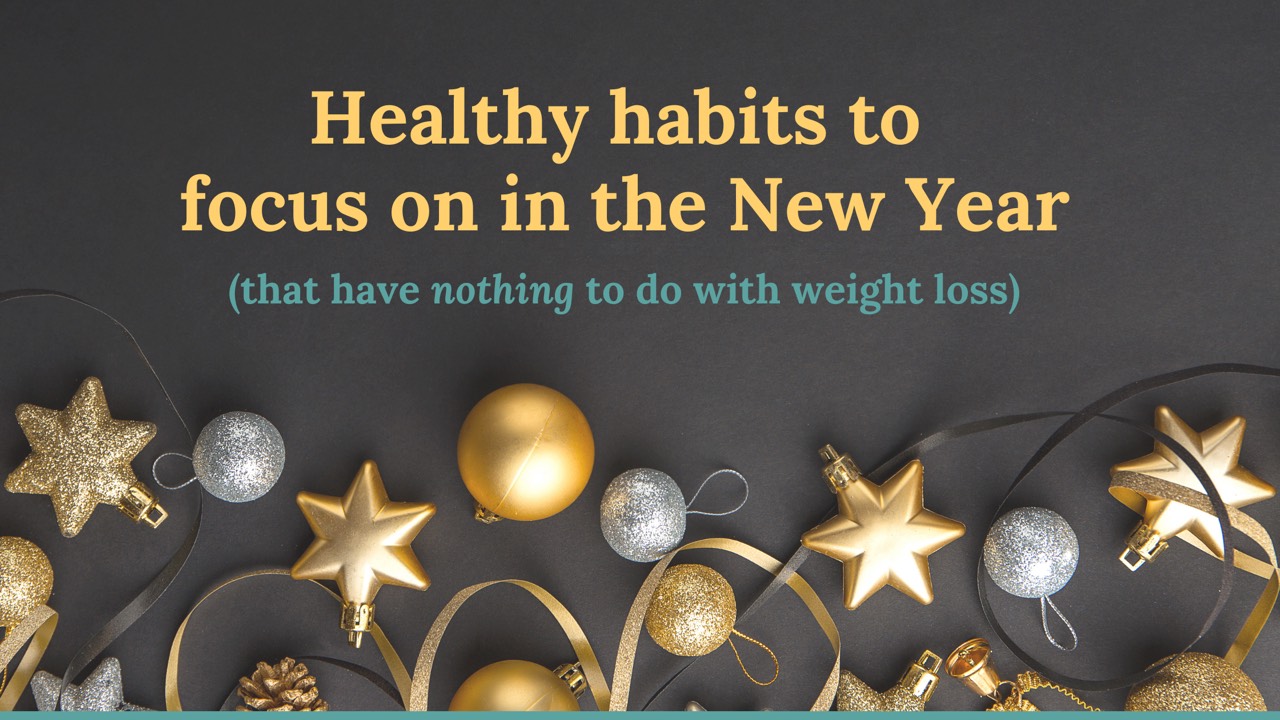
January always has that fresh feeling! There are 12 months to come and the possibilities feel endless. This might give you the knee-jerk feeling to set all the goals, including weight loss ones. You might be thinking, in this atmosphere that feels like anything is possible, that *this* year is the one you “lose the weight for good.” You’ve made a grocery list, thrown out the last of the holiday foods, and you signed up for that new gym membership.
But did you know that about 95% of diets fail? January might feel new and exciting, but many weight loss resolutions end before it even becomes February. That’s because restriction sets you up for binge eating—it becomes a cycle where you are depriving yourself “on the wagon” and then feel out of control when you give into cravings.
Instead of focussing on the number on the scale, here are examples of New Year’s resolutions to support your mind, body, and soul!
Add happiness habits.
You’ll notice this one is about adding in new things, in...
4 Reminders for When Your Bathroom Scale Gets the Best of You

It can be so easy to get obsessed with the numbers on your bathroom scale and hop on/hop off every day or sometimes multiple times a day. You might be telling yourself that it’s “just to check in” but let’s look at your motivation a bit more closely:
If the number on the scale is higher than yesterday, do you have a bad day? End up picking yourself apart and vow to restrict what you eat?
Are you stepping on the scale more than once a day? Do you have set ‘rules’ for when you weigh yourself (for example, must be after using the washroom, must be without clothing, etc.)?
If you find yourself letting the number on the scale dictate your mood and actions, here are four reminders you need to hear. Feel free to print these out to read them when you need to, or even tape them on your bathroom mirror!
- It is normal for your weight to fluctuate during the day depending on what you’ve had to eat, drink, or if you’ve had a bowel movement. And if you’re a woman, you can expect your weight to ...
Tips to Feel Your Best During Bathing Suit Season
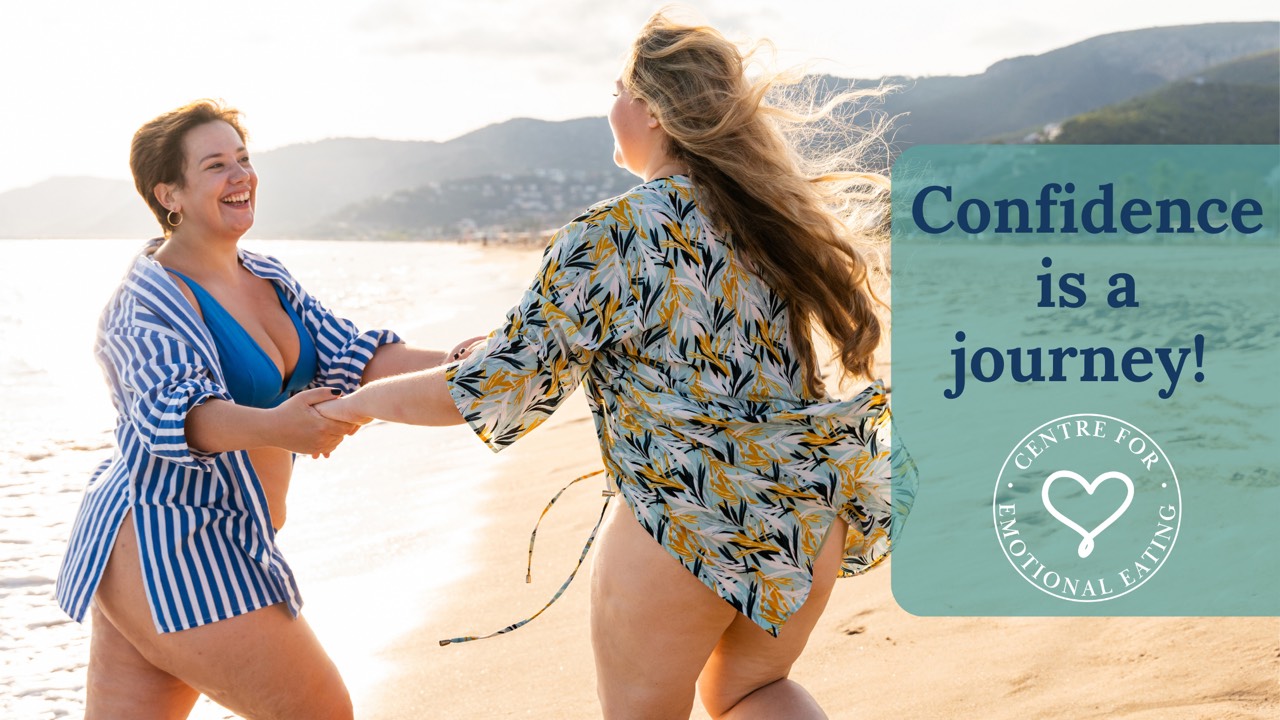
The summer ‘uniform’ is made up of shorts, tank tops, and sweating! All can make you feel uncomfortable if you struggle with body image. But perhaps the most dreaded of all is the bathing suit. At some point we go from children who love being in the water and playing in the sand without a second thought, to worry-charged and self-conscious adults who will actively avoid situations that require suiting up.
If this sounds like you, you’ll want to bookmark this post to come back to when you’re faced with a bathing suit event. Here are 4 tips to make you feel more comfortable (dare we even say confident!):
- You’ve heard it before but it bears repeating: no one is as concerned about your appearance as you are. We in no way want to discount experiences where someone something commented on your body. No one gets to do that and here’s what you can do if it happens. But we can be our own worst enemy when it comes to criticizing ourselves. Consult someone you trust, a partner or friend, who c ...


